Managing the Covid-19 Crisis: Returning to the office
Recovery is coming, but it is likely to be moderate at first and will call for skillful management, according to the latest Eden McCallum survey of business sentiment in the Covid-19 era. Around 200 businesses in the UK, the Netherlands and around the world responded to this eighth Eden McCallum survey, and the findings reveal some guarded optimism as well as serious thinking about how to lead and manage organisations in the return to (something like) normality.
There seems little doubt that business prospects are finally improving. Nearly half the businesses surveyed expect a rise in revenue in 2021 of at least 10% compared with last year, while only a fifth expects a decline of 10% or more. 31% think that revenue will stay pretty much the same.
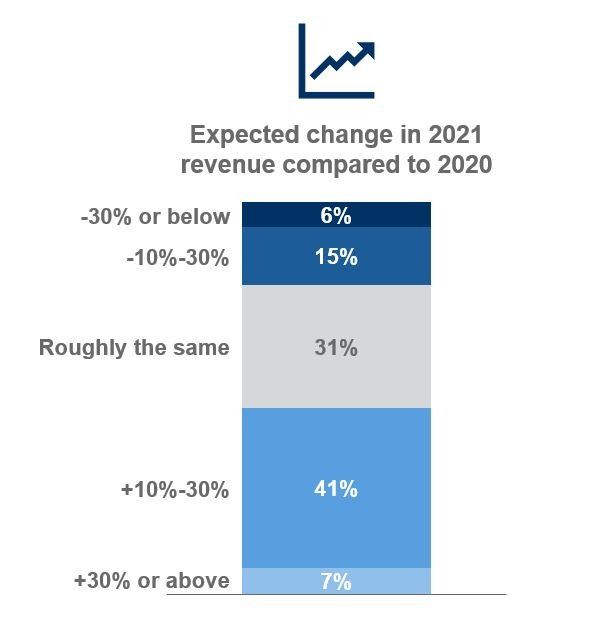
Since vaccination roll-outs were announced in November, most businesses have been estimating a return to “normal” by late 2021 or early 2022. This April, over half of businesses are still hoping to see “normality” return by the end of 2021, predicting that business will return to “normal” within less than 9 months.
While the general mood in business is improving, the practical challenge of how to manage this return to more normal trading is very much front of mind. This is where fine judgment will be required.
The vast majority of businesses are planning for employees to be in the office part-time post Covid-19. A third say that their people will be onsite 2-4 days per week, with the flexibility to choose which days they are in; a fifth (19%) say that their people will be onsite for certain specific tasks, with flexibility for other matters and a further fifth (18%) say that staff will be onsite on specified days, with flexibility at other times. Very few businesses are offering full flexibility (5%) or mandating full-time in the office (3%).
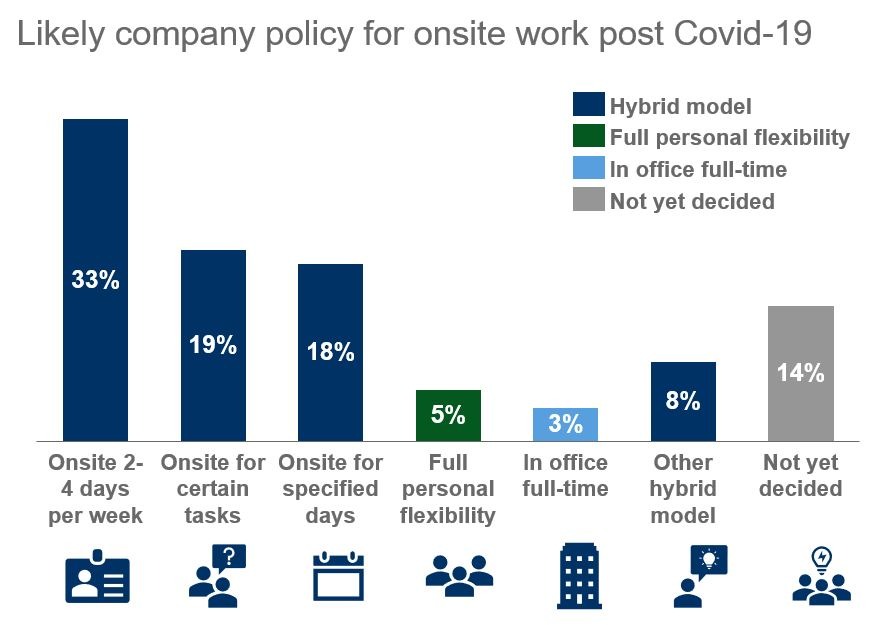
The priorities for business leaders in managing this return to more normal operations with remote work policies are team productivity and staff morale. Team productivity is seen as very important by 82% of businesses, while 78% say that staff morale/mental health is very important. Other key factors being considered are fostering company culture/belonging, individual productivity, and creativity (58%, 54%, and 49% respectively saying this is very important).
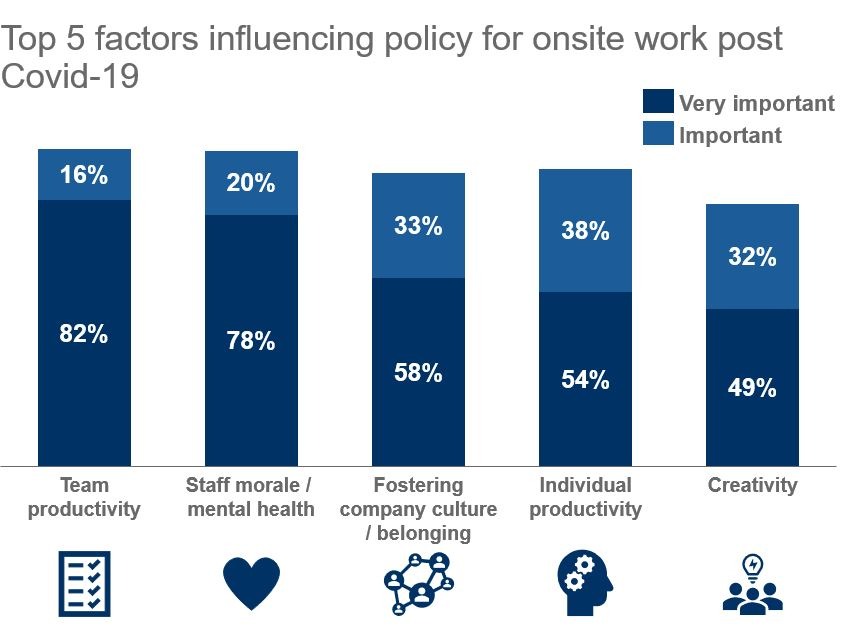
By way of contrast, cost considerations and the ability to monitor staff are seen as being much less important factors influencing remote working policies. The ability to monitor or manage staff is seen as very important by only 8% of businesses. And the possibility of reducing office space or rental costs is very important for only 4%.
Businesses are focusing on balancing productivity and staff preferences with the needs of clients and concerns about how to make a split remote/onsite workforce effective.
In the short term, city centres are expected to remain lightly occupied: around 75% of businesses expect less than half their employees will be onsite in the near future. Once the Covid-19 crisis is truly over around 60% expect more than half will be back onsite at any one time.
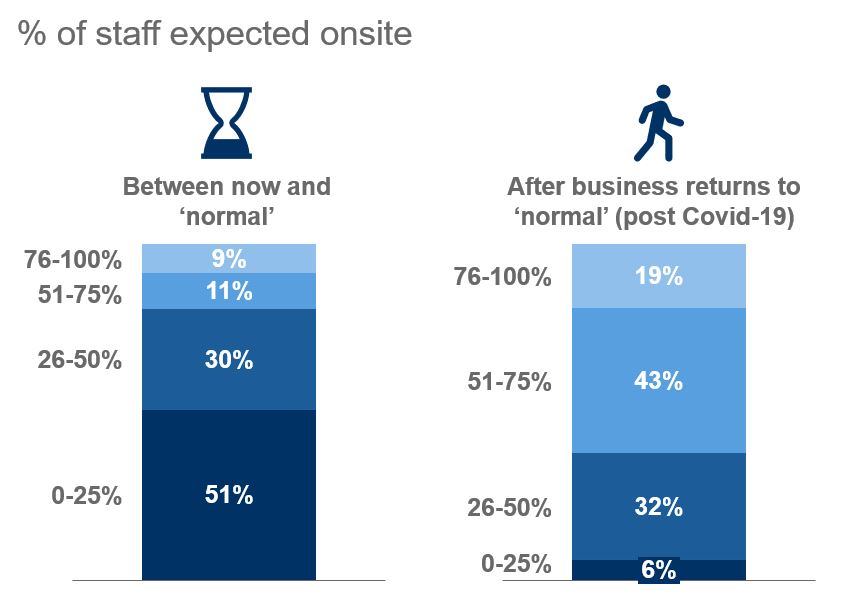
Of course, the question of where to work confronts business leaders as well. Two–thirds of business leaders expect to spend 2-3 days per week in the office once business returns to “normal”. Less than a quarter (23%) say they will be in 4 days per week or more.
Thoughtful leaders appear to be planning to give staff a good deal of discretion about how and where they get their work done. Over 60% of businesses will allow staff to choose how to attend internal meetings post Covid-19 (whether physically present or dialing in via Zoom or similar), but a sizeable minority plans to require specifically “non-hybrid” models. Similarly, over 90% of businesses surveyed are not going to demand a vaccine for onsite work, but nearly a third will require regular Covid-19 testing.
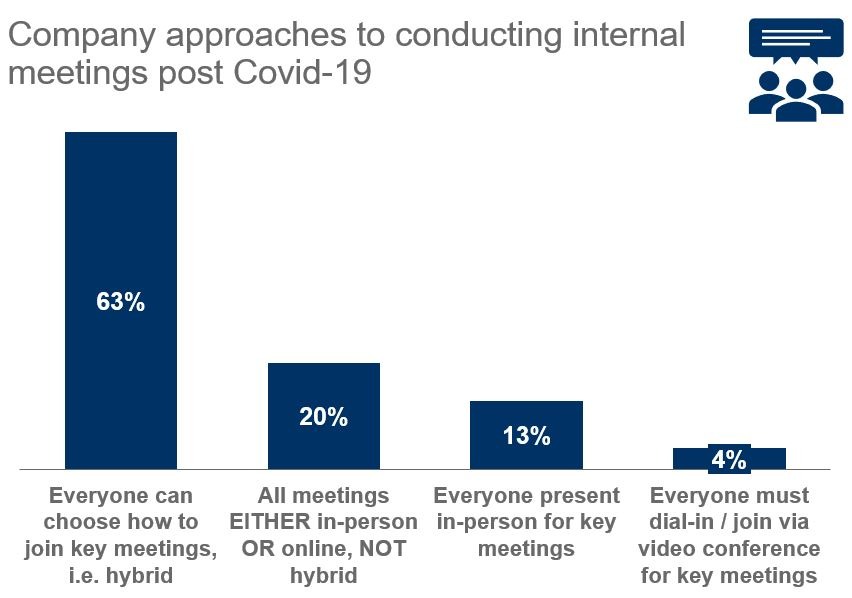
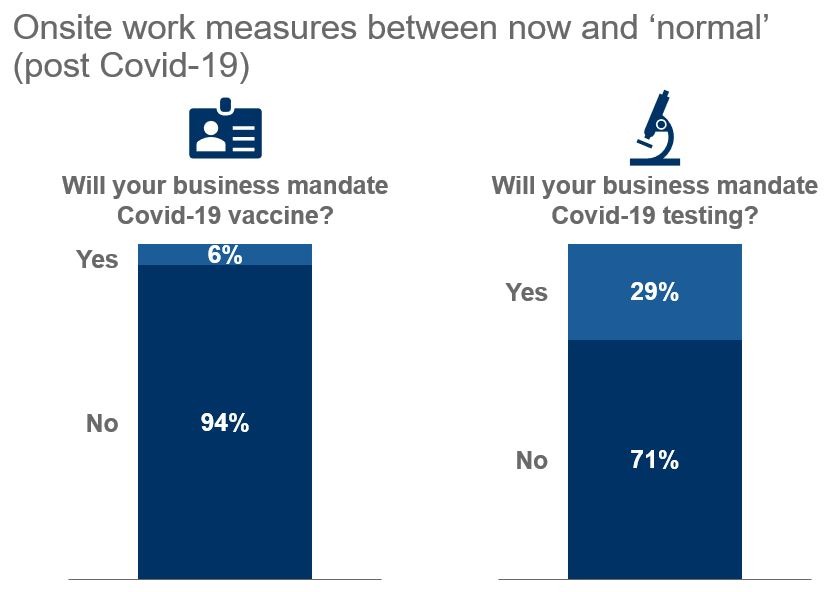
Sara Ghazi-Tabatabai, Associate Partner at Eden McCallum, says that the consideration being given to future working practices is encouraging. “It is a good sign that people have learned from the crisis and used this opportunity to rethink how we can all operate more effectively,” she says. “There is no need to go back to working patterns which may in truth have been inefficient. Flexibility combined with the ability to work face-to-face again should be good for everyone, employees, businesses and customers,” she adds.
To view the full results, please click here and follow us to remain updated.

